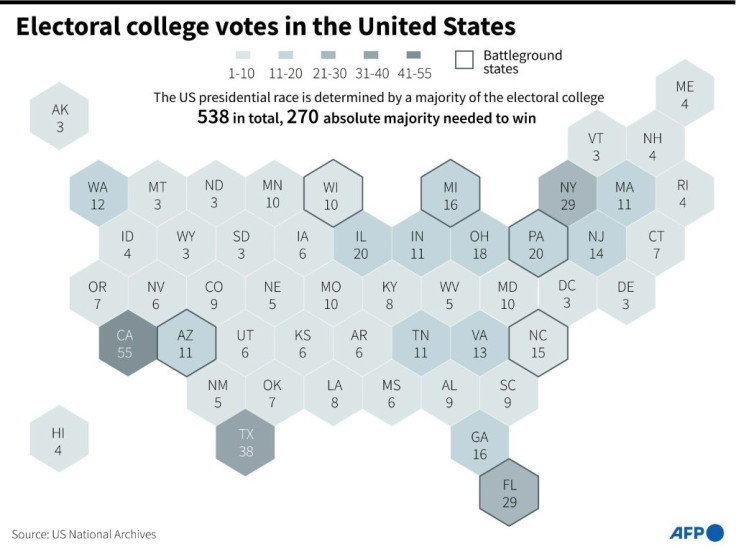The Popular Vote Is Pointless: Presidential Voting Results Explained
Congressional, Senate and other down-ballot candidates win office through the popular vote, but for president, it’s a different matter altogether. They need the Electoral College's votes.
The Electoral College Is Elected--But Not By You
The popular vote decides the legislative branches, but it's different for the executive branch. That decision is left to the Electoral College, the delegates that together put the 538 votes divided among U.S. states in the column of either presidential candidate.
Those folks are elected every four years too, just not by the public. It’s state party leaders that select them in the month’s leading up to Election Day. So in a sense, the race for president is a state-by-state one rather than an aggregate national contest.
No, It's Not A University
Don’t get confused by the term. An explainer in The New York Times notes that it’s not a college – the term is more related to “colleagues” – and the electors aren’t voters in the everyday sense. When you cast your vote for president, what you’re really doing is voting for a slate of these so-called electors, who in turn decide the proportion of a state’s allocated votes for the electoral college. That portion, 55 electoral votes in the case of California, represents how many Senate and House members there are in a state.
A Brief History of the Electoral College
An article from the U.S. National Archives, which oversees the body, details how the Electoral College came out of the Constitutional Convention in Philadelphia in 1787. Delegates there worried that if lawmakers picked the president, it would upset the balance of power enshrined in the Constitution. And before social media and know-with-a-click internet forums, they wondered if everyday voters – all white men at the time – were informed enough to decide on the head of state.
“So they created electors,” the Archives explained. “And they hoped the electors would be some of [the] brightest and best-informed people who would base their decisions on the candidates' merit.”
How The Electoral College Votes
Only Maine and Nebraska can split the vote. All other states award the Electoral College in a winner-take-all fashion, depending on which candidate wins the state.
So-called faithless electors have broken ranks before, sometimes even voting for a candidate that isn’t even on the ballot. The New York Times finds that 33 states have laws on the books against faithless electors. Breaking rank is a felony in New Mexico. A tie is theoretically possible, in which case Congress would decide.
Should The Electoral College Still Exist?
The Electoral College in the modern age is somewhat controversial. In 2016, Democratic candidate Hillary Clinton won an overwhelming majority of the popular vote but lost to Donald Trump in the Electoral College. This time, we wonder if Trump can lose the popular vote, but still win in the Electoral College.
An op-ed Tuesday in USA Today argues the Electoral College is an antiquated system. The National Archives notes that there’s been no real consideration to overturn the system in decades, however.
The Electoral College Doesn't Vote On Nov. 3
While we’re all up late watching the cable news outlets wade through early vote tallies, keep in mind that Electoral College delegates don’t have to decide until the first Monday after the second Wednesday in December. That’s Dec. 14 this year.

© Copyright IBTimes 2024. All rights reserved.





















